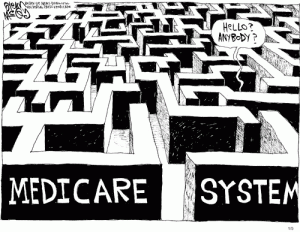By Jack Cumming
Let’s start with the obvious. Opportunities are fleeting. Challenges are always with you. Moreover, the biggest barrier to your opportunity is your fear of criticism. Remember how your parents would tell you, “Don’t do this,” or “Don’t do that.” You’re not a child anymore. Seize the freedom that is yours as an adult. That’s the beginning of realizing your opportunity.
About You
Who do you want to be? Do you just want a job with raises keyed to the rate of inflation? That’s okay, but if that’s your ambition, accept that as your fate. Fate is the reward for avoiding opportunity risks.
Do you want a job in which you are prized by your bosses and rewarded with steady advancement? That can be a satisfying life, and if you’re lucky, you’ll retire after 40 or 45 years with a gold watch and a handshake.
Unfortunately, though, the kind of enterprise that has that stability is extremely rare. Even government employment is no longer secure. Moreover, the steady advancement career ladder only works for the kind of person who was a teacher-pleaser in school. Ask yourself candidly if that’s you.
Perhaps you want career security without the tedium of a workaday job. That can come with a career that requires mastery of a craft. Such careers can vary from crafts like cabinetry and the like to that of a physician with a narrow specialty like a cardiac electrophysiologist. The challenge lies in remaining up to date with advances. That can mean learning the use of new tools for cabinetry or new findings for cardiac health.
Beyond a Job
Beyond these choices, there are adventurers who somehow eke out a living while traveling the world as crew on ships or as truck drivers and the like. But, more commonly, those who don’t fit into a job slot turn toward entrepreneurial pursuits. It can be as simple as gig driving for Uber or Amazon or as elaborate as starting a restaurant or other local retail business.
Many people turn to selling since salespeople are often commission compensated, which allows them considerable latitude to pursue their own hours and working methods. These are the people you often find at meetings of the local chamber of commerce.
As we’ve moved along this spectrum of opportunity from a routine, repetitive job to the higher risk, higher reward echelons of craft, adventure, or relationship, we’ve touched on the entrepreneurial opportunity, but only lightly. Now it’s time to give that a lingering look.
Your Own Business
Imagine that you buy or start a company. Does that sound like something that you would be willing to risk your reputation and talent on? If so, you may be one of those unique individuals who take the risk to try to change the world for the better and who succeed. You may, too. Of course, you need to accept that the failure rate among those who try is very high.
If you think that might be you, if you have always wanted to make such a break, don’t tarry. The older you get and the longer you wait, the harder it becomes to make the leap. It is a leap. It can be tough to go from the imagined comfort and security of a job to relying solely on your own energy, your own ingenuity, and your own resilience. We can’t sugarcoat it. Going into business for yourself is not easy.
Aging Services
If you’re a reader here, we’ll assume that you have an idea that might change aging in America for the better. You might have a concept to take “villages,” which are best suited to younger oldsters, to a new level with, say, a network of quality board and care residences for those no longer able to live on their own. An idea like that could become a national brand and empower the elderly in ways that today’s CCRCs don’t.
You would have to be passionate about change. Reading about Steve Jobs, for instance, shows just how obsessive an entrepreneur often is. Is that essential for success? Perhaps. Do most CEOs have that kind of passion? Seldom. Many professional CEOs seem more concentrated on process and compensation than on opportunity and the future.
Determination
You also have to be willing to do whatever it takes. That might mean moving to a financial center to gain access to capital markets. It will certainly be risky. There will be disappointments. You have to be resilient. You also have to be visionary with an ability to articulate the vision simply and clearly enough to create a memorable, trusted national brand.
Beyond that, you have to be fast paced to catch the dream and to bring it to realization before others get the jump on you and leapfrog your advantage. In its early days, it would have been easy for others to take the Amazon dream and run with it. Jeff Bezos, though, moved so fast that others couldn’t catch up, while Sears stood by and was superseded.
Impatience As a Virtue
Opportunity begins with self-knowledge, an idea, and impatience. Bill Gates was so impatient that he left Harvard. That worked out well for him, though he later protested otherwise. If you are looking for opportunity, now is the time to act.
One thing is clear. Entrepreneurs read, learn, and perfect. If you think big, then Walter Isaacson is a good place to start. If you think smaller, you might like the 80-minute “Smarter by CNBC Make It” video course.
Whatever your makeup and risk tolerance, you can find your opportunity. Seek it out. Be content with what you choose. If later you wish you had chosen otherwise, don’t feel sorry for yourself. We tend to make what we believe are the best choices for us at the time.








